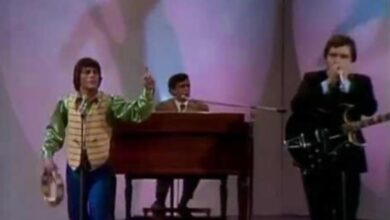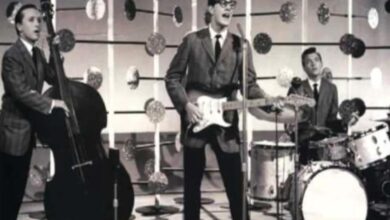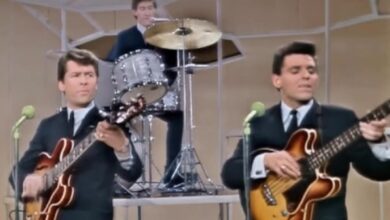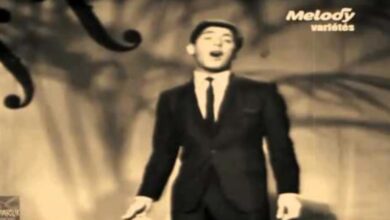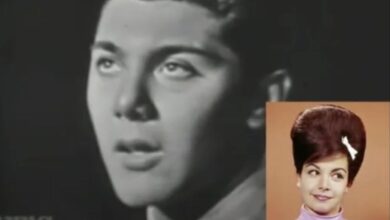Lainey Wilson Ignites the CMA Awards 2025 with a High-Voltage Medley Honoring Country Music’s Past and Future
Lainey Wilson’s opening medley at the 59th CMA Awards on November 19, 2025, felt less like a standard TV kickoff and more like a full-on country music pep rally. Bridgestone Arena was already humming, but the second Lainey stepped into that first spotlight, the room shifted into “big moment” mode. She wasn’t just hosting — she was steering the emotional tone of the whole night. The show built the opener around her as a kind of ringleader, and you could sense the intent: start with gratitude for the genre’s roots, then sprint straight into where it’s heading next.
The staging made it clear this was going to be a moving, song-to-song ride rather than a single performance. Lainey started with a playful, confident host monologue vibe, but it was stitched to music immediately, so the transition felt natural instead of forced. She had that “homegrown superstar who still feels like your neighbor” energy, which is a big part of why audiences trust her. The band hit hard, the lights pulsed like a concert instead of an awards show, and the camera work let the medley breathe without chopping it up.
Kicking off with Chris Stapleton’s “White Horse” set the tone: modern, tough, and slightly dangerous in the best way. Lainey leaned into the dramatic gallop of the song, not copying Stapleton, but reshaping it through her own rasp and Louisiana drawl. Bringing Charlie Worsham into that segment gave it extra muscle. It felt like a salute to country’s current heavyweight storytelling — not glossy, not cute, but rooted in grit. You could almost hear the crowd recognizing the choice as a marker of where “serious” country songwriting lives right now.
From there, the medley time-traveled without warning, sliding into Brooks & Dunn’s “Hillbilly Deluxe.” The whole arena reacted like someone lit a fuse. That song carries decades of honky-tonk swagger, and Lainey sang it with a wink, knowing exactly what kind of nostalgia she was unlocking. The staging shifted warmer, more neon-bar than arena-sleek, and even viewers at home could feel the grin in the room. It was a reminder that the genre’s past doesn’t sit behind glass — it still dances.
Then came a sharp pivot into Ella Langley and Riley Green’s “You Look Like You Love Me,” a 2025 chart monster and one of the year’s most talked-about duets. Lainey didn’t overthink it; she let the hook land clean and bright, making it feel like a fresh radio moment dropped right into a legacy medley. What was cool is how easily that newer hit held its own beside the classics. The switch said a lot: today’s breakout songs can stand shoulder-to-shoulder with the old guard when they’re built on real melody and attitude.
The medley’s heartbeat became pure attitude when she tore into Gretchen Wilson’s “Redneck Woman.” This isn’t a song you sing politely, and Lainey didn’t. She carried it like a banner — heat in her voice, shoulders squared, crowd roaring back at her. The cut works as a cultural statement as much as a party track, and in Lainey’s hands it felt like both. The camera caught women in the audience yelling every word. It wasn’t nostalgia for nostalgia’s sake; it was a reminder of the fight and pride that shaped modern country’s backbone.
Right after that, the mood softened into Lady A’s “Need You Now,” and the emotional contrast was the point. Lainey’s delivery didn’t go pop-pretty; she sang it with a worn-in ache that made the lyric feel closer to a late-night bar confession than a polished crossover ballad. The arena lights cooled down, phones started lifting, and you could almost feel the sing-along swell even before it fully arrived. It was a breath in the middle of a sprint — proof she understood pacing as a performer, not just a host.
Without letting the air fully settle, she punched back into heavy storytelling with Miranda Lambert’s “Gunpowder and Lead.” The song is basically a country action movie, and Lainey leaned into that tension like she was lighting a match. The band’s rhythm tightened, the guitars got sharper, and her voice carried that “don’t test me” edge. It felt like the medley’s reminder that country isn’t only heartbreak or party — it’s also vengeance, survival, and dark humor, all at once.
Then the medley swerved into one of the biggest genre-bending hits of the year: Shaboozey’s “A Bar Song (Tipsy).” In almost any other context, that might have felt like a risky insert, but Lainey made it feel inevitable. She played it like a rowdy, communal toast, letting the crowd take half the chorus. The CMAs have been inching toward broader sounds for years, and this moment made that shift obvious on live television. It was country wide-open, not country closed-fist.
As the medley rolled on, it slid into Little Big Town’s “Girl Crush,” and suddenly the whole arena turned into a slow-moving sea of voices. Lainey didn’t try to out-sing the original’s hush; she honored it. Little Big Town joined her, and their harmonies wrapped around the song like velvet. The segment felt almost cinematic — soft lights, close camera angles, and a kind of hush you rarely feel in an awards hall. It was the medley’s tender core, and it reminded everyone that restraint can hit just as hard as volume.
The finale ramped back up with a burst of pure fun: “Where the Blacktop Ends,” performed with Keith Urban. The second that riff kicked in, the whole production shifted into road-trip energy. Keith’s guitar tone brought that arena-rock shine, while Lainey kept it grounded and twang-forward. It felt like a celebratory handshake between eras and styles — her modern grit and his bright, stadium-ready country pop meeting in the middle. The crowd response was immediate and loud in a way that felt like a closing-time cheer.
What made the medley work so well wasn’t just the song list; it was the way Lainey carried each transition like a story beat. She didn’t treat the classics like museum pieces or the new hits like guest-list favors. Everything felt connected by mood and message: pride, heartbreak, toughness, humor, and release. That’s a hard balance to pull off in a few minutes of TV time. But she did it by trusting her instincts and treating the genre as one big living conversation.
As a host, that opener also functioned like a thesis statement for the night. Lainey has one foot in tradition and one foot in the present, and the medley was her way of saying country isn’t a straight line — it’s a messy, beautiful family tree. By spotlighting Stapleton and Miranda alongside Shaboozey and Ella Langley, she put new blood and old legends in the same frame without apologizing for the mix. The CMAs felt more like a gathering than a gatekeeping ceremony.
The performance landed even harder because Lainey wasn’t just a guest on the show; she was the show’s gravitational center. She came into the night leading nominations and walked out with major wins, including Entertainer of the Year, Female Vocalist of the Year, and Album of the Year for Whirlwind. That context gave the medley a glow of inevitability — like you were watching the genre’s current standard-bearer at full power. There’s something rare about seeing someone host, perform, and win all in one night without it feeling forced.
What you could feel in the arena — and through the broadcast — was how much joy Lainey took in sharing the stage. She didn’t perform like a solo star guarding a spotlight. She performed like a fan who got handed the keys for a night and decided to bring her favorite people and songs along for the ride. That spirit is contagious. It’s why the opening medley became one of the most replayed and talked-about moments of the ceremony within hours.
By the time the last chord rang out, it felt like the CMAs had already declared their theme: country music is expanding, but it still knows where home is. Lainey Wilson’s medley was loud proof that the genre can honor its roots without getting stuck in them. It showed a roadmap from yesterday to tomorrow, and it did it with energy, humor, and heart. If the night needed an opening statement that said “this is country in 2025,” she delivered it in capital letters.
